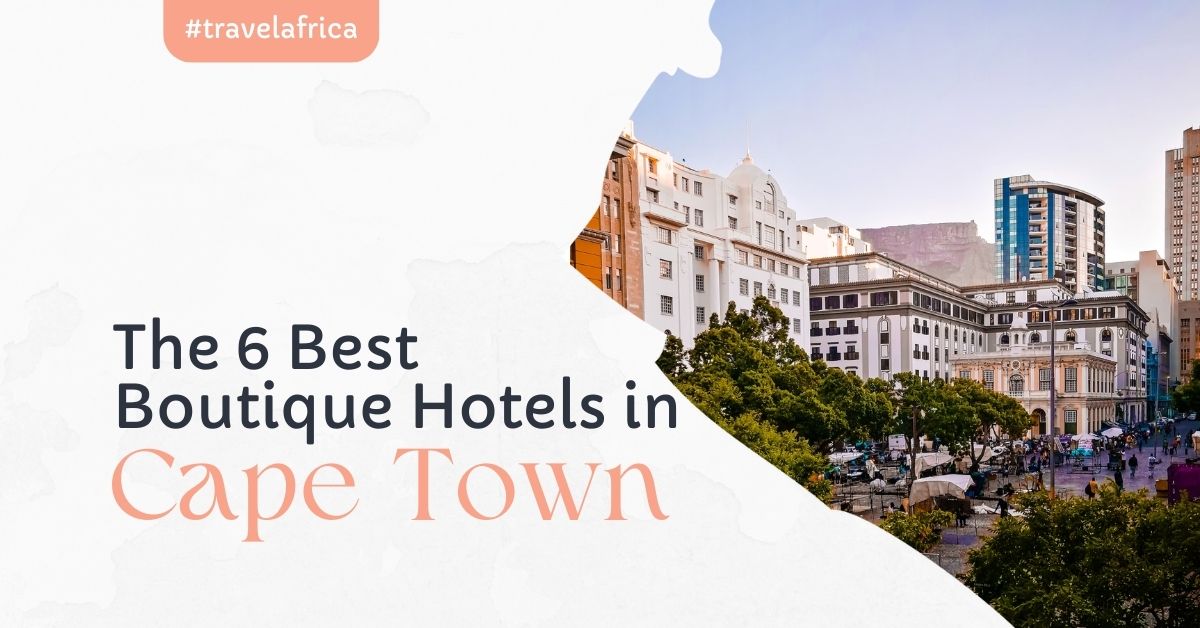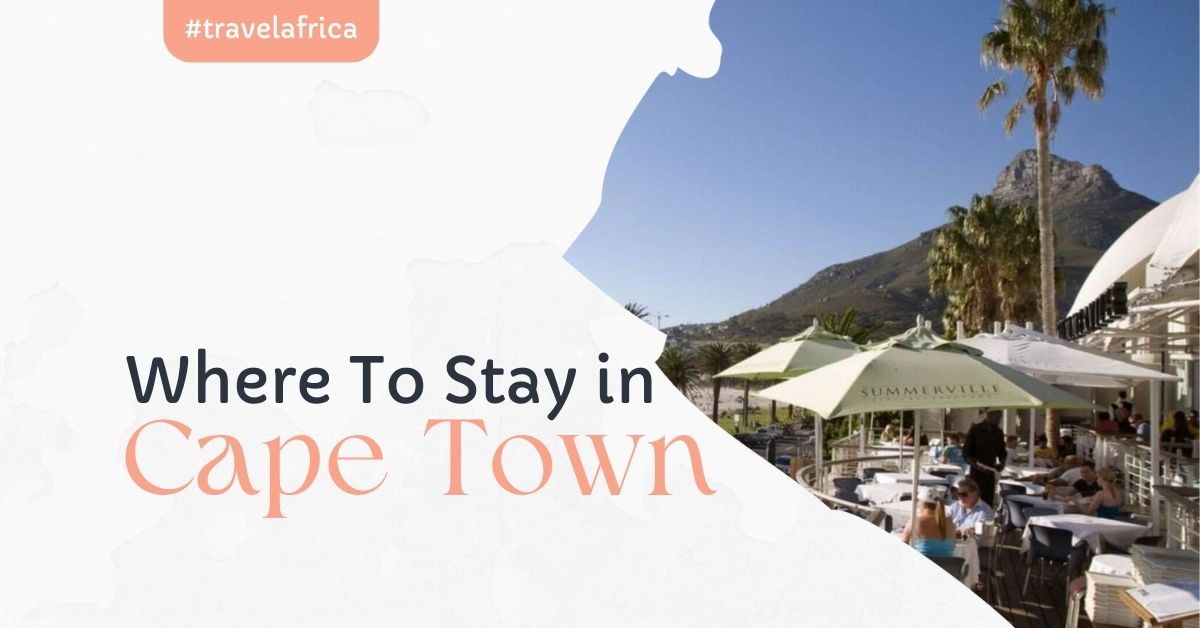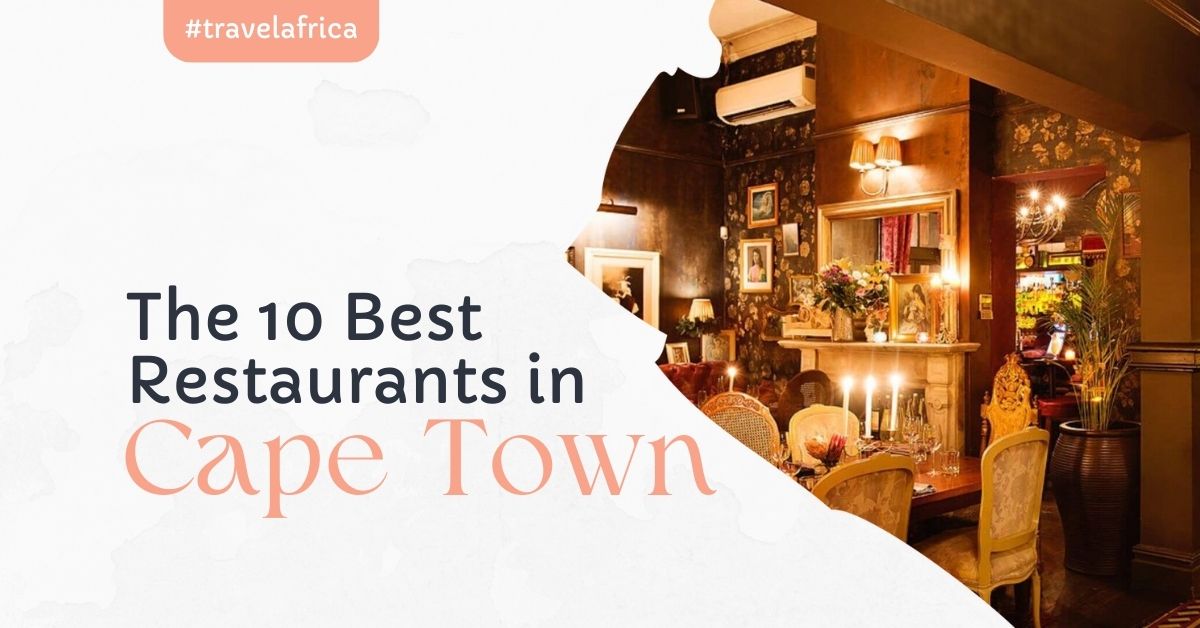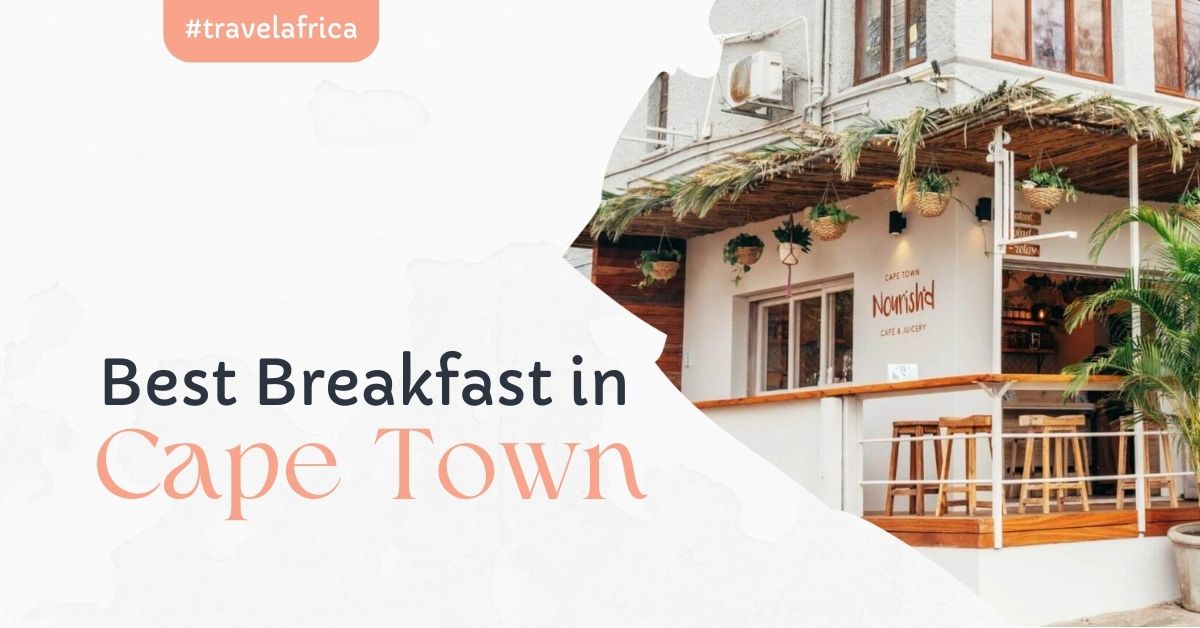Cape Town, South Africa, is one of the most beautiful places in the world. As a regular visitor to the Mother City, I’m often asked, ‘Is Cape Town safe?’. I maintain it is as long as you’re careful.
This comprehensive overview breaks down the safety landscape of Cape Town in 2024. It explains everything you need to know to navigate the city safely during the day and at night and how to seek help if you encounter trouble. Whether you’re travelling with friends, family or solo, this guide will hopefully make your Cape Town trip safe and enjoyable.
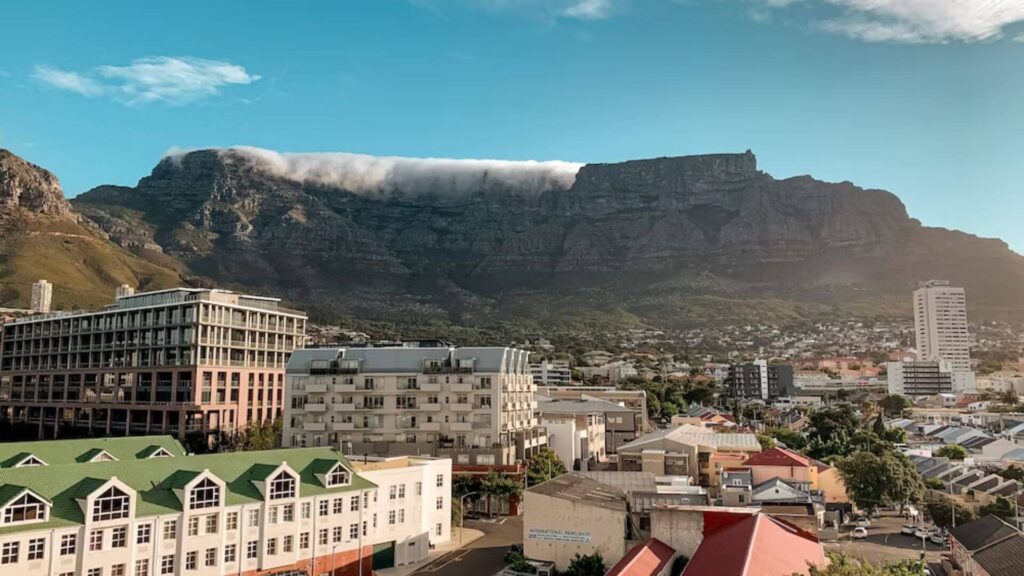
Table of Contents
- 1 Is Cape Town Safe? The Current Situation
- 2 Which Areas Are Safe In Cape Town?
- 3 Areas To Avoid In Cape Town, South Africa
- 4 Mountain and Sea Safety in Cape Town
- 5 Is Transport Safe in Cape Town?
- 6 Safety Tips And Precautions
- 7 Local Insights On Cape Town Safety
- 8 Is It Safe in Cape Town, South Africa, for Female Travellers?
- 9 Is Cape Town Safe for Solo Travellers?
- 10 Emergency Contacts and Resources for Cape Town Visitors
- 11 FAQs
Is Cape Town Safe? The Current Situation
The short answer is parts of Cape Town are safe while other parts are dangerous. The authorities in Cape Town are dedicated to ensuring visitors to the city enjoy a happy and safe stay. High visitor return numbers suggest most tourists have a positive experience in Cape Town.
Besides the national police force, South African Police Service (SAPS), Cape Town’s crime safety initiatives are bolstered by:
- The Metropolitan Police Services – an extra layer of policing.
- Central City Improvement District (CCID) – a private-public company that promotes safety in central Cape Town. Other CCIDs are being considered in popular areas such as Camps Bay.
- Dozens of SANParks Rangers patrol Table Mountain, many with dogs.
- An additional 80 officers were deployed to the visitors’ hotspots, including parts of the mountain, for the 2023/2024 summer season.
- Numerous private security firms patrol parts of the city.
- Community initiatives, like neighbourhood watch organisations and WhatsApp groups.
- Using technology and international best practices to keep its citizens safe – Cape Town is the most proactive South African city in this regard.
Despite all of the above, crime occurs in even the best parts of Cape Town. By taking sensible, responsible precautions, you can keep yourself safe and enjoy a wonderful time in the Cape. Crime increases with the population density, so it stands to reason that crowded cities like Cape Town have higher crime rates than small, rural towns like Montagu.
The risk and security situation in Cape Town evolves constantly. If you’re planning a trip, it’s important to check on the current status of the happenings in the city. The City of Cape Town offers relevant helpful information on its Travelwise platform. Facebook Groups, like Cape Town Digital Nomads, are also a fresh source of on-the-ground perspectives.
Which Areas Are Safe In Cape Town?
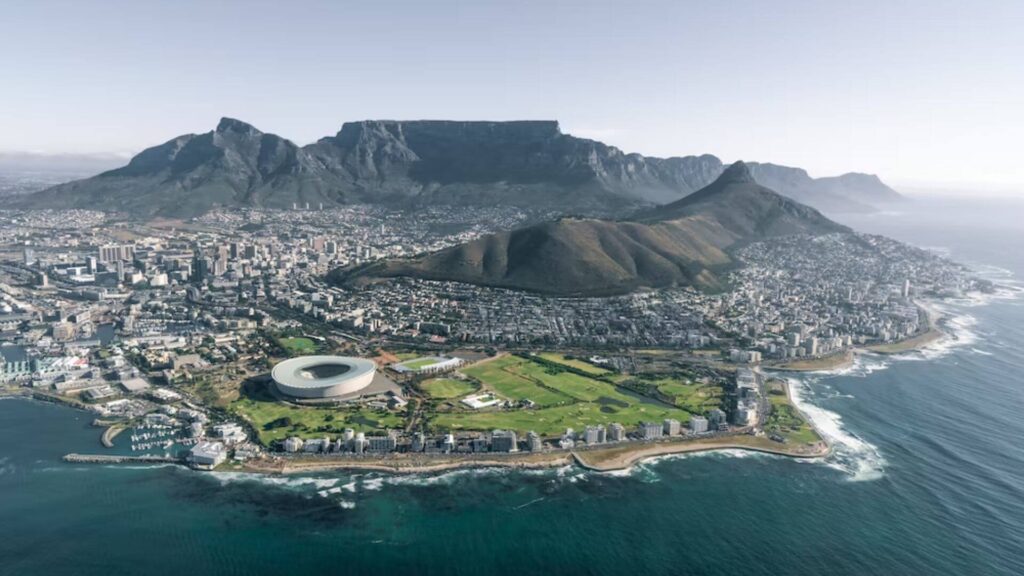
The following touristy and mostly affluent areas have comparatively lower levels of crime and better policing and private security coverage. They are good places to stay in and explore during the day.
However, the risk increases somewhat at night and Capeonians tend not to walk the quiet streets at this time (unless in large groups). In general, this is a good rule to follow.
- The City Bowl which includes Central Cape Town, Gardens, Tamboerkloof, and Vredehoek. The Cape Town Station area can be dodgy; if you visit the Company Gardens be sure to go when there are other people around or security is visible.
- Bo Kaap is safe during the day in the touristy part where the colourful buildings are but you shouldn’t wander too far from this section because some opportunistic crime occurs around the suburb.
- De Waterkant, Green Point, and Mouille Point
- Sea Point – especially Beach Road and Regent Road
- Camps Bay and Clifton
- Constantia
- Newlands and Kirstenbosch
- The Coastal stretch from Muizenberg to Simonstown
- Tableview and Bloubergstrand
- Plattekloof, Tygervalley and Century City
- The V&A Waterfront is particularly safe during the day and night
- Long Street: this popular tourist beat is lively and vibrant but it has a shady side. Many visitors have tales of being robbed, mugged, scammed, pickpocketed, and assaulted on Long Street. This mainly happens at night; during the day it is less shady.
Like many modern cities, the tourist enclaves in Cape Town attract their share of crime. We’re talking, scams, mugging, pickpocketing, theft, and drink-spiking.
Cape Town is also affected by homelessness. Small homeless encampments in the City Bowl and Sea Point are the source of some harassment and crime. The homeless situation in South Africa is complex. Cape Town is battling to bring it under control but the process is long and hard.
Areas To Avoid In Cape Town, South Africa
Most of the violent crime in Cape Town occurs in the townships and informal settlements which are plagued by poverty, unemployment, and gang violence. The following areas in the city should be avoided:
- Nyanga
- Khayelitsha
- Gugulethu
- Delft
- Philippi
- Cape Flats
If you are driving be aware of your surroundings and if it seems your GPS has directed you off the main artery and you are heading into a clearly impoverished area, please reverse course immediately.
Tip: If you want to experience a Cape Town township, book a professionally guided township tour. These tours provide a fascinating glimpse into the local culture, cuisine, and activities. They are largely safe as they are supported by the community for the economic benefits they bring. Your hotel or guest house should be able to connect you with a reliable operator.
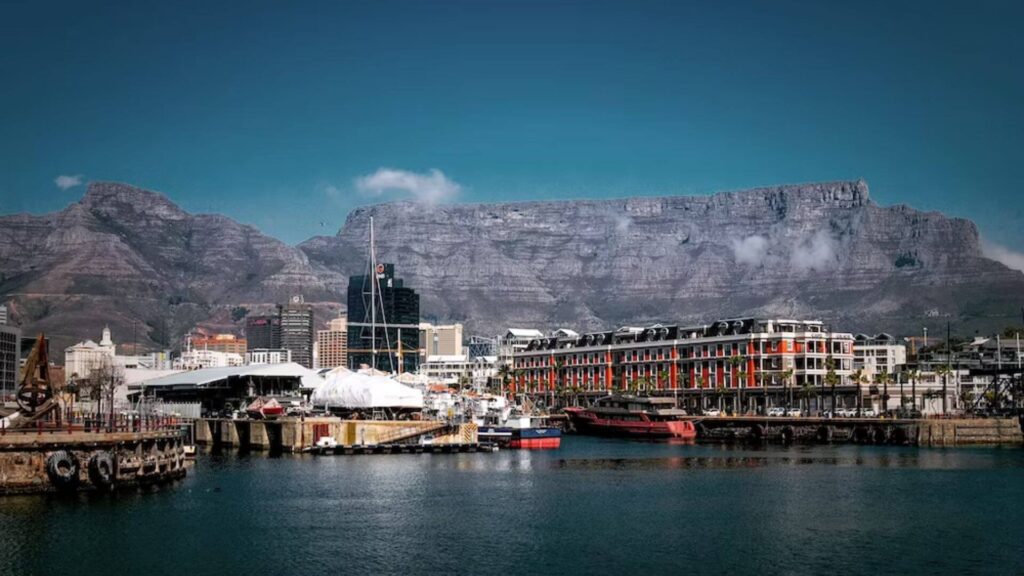
Mountain and Sea Safety in Cape Town
Table Mountain
Table Mountain is one of the wonders of the world. When hiking this magnificent range, follow the cardinal rules of hiking and bring along:
- Water and nourishment
- Sun protection
- Additional warm clothing
- Medical aid items
- Some form of navigation
The mountain sometimes gets blanketed with dense clouds (the tablecloth). The Table Mountain Cableway is a handy resource to check for mountain conditions.
Except for the odd snake, Table Mountain’s animals are mostly a friendly bunch. Unfortunately, human predators prowl this terrain. Several hikers, and even cyclists, have been robbed and some stabbed. While Cape Town is stepping up efforts to secure the mountain, the range is 70 km long and there currently aren’t enough rangers and dogs to cover it effectively.
Is it safe to hike Table Mountain then? For the most part, yes. But proceed with caution and hike in a large group. Hiking groups like Westside Adventurers (WhatsApp Community 082 212 3410) welcome visitors. It’s advised not to carry valuables, too. If you have more than one phone, bring your cheapest one.
Beaches
Is Cape Town safe for swimming? Yes, provided you stick to recognised beaches and swim between the lifeguard’s flags. Nasty currents occur periodically and sharks are occasionally spotted in the warmer waters of False Bay. Check out the Shark Spotters Facebook page to keep abreast of shark and whale activity.
It’s best to avoid the beaches after dark and don’t get isolated, especially on long beaches like Noordhoek, Milnerton, and Strandfontein.
Is Transport Safe in Cape Town?
The public transport in this modern tourist city is not great. Let’s talk about how visitors get around and how safe the various travel modes are:
Safe transport in Cape Town
- Uber is the dominant and safest e-hailing app. It is recommended over Bolt, which has had some safety issues in the past. Remember, these apps have safety features like sharing your trip details and in-cabin audio recording.
- Metered taxi businesses took a hit after Uber arrived in Cape Town and there aren’t many great options. Excite Taxis is a reputable and safe operator in this space.
- Car, bike, or scooter hire are safe transport options. The popular Rent-A-Cheapie offers budget hires but runs pretty old vehicles. If you’re riding a bike or scooter, remember to wear the necessary safety gear.
- Private driver: Arranging a private driver through your guest house or hotel is a good, but more expensive, transport option.
- MyCiTi is the city’s modern, card-based, bus system. It is fine to use for shorter trips, especially in the City Bowl and Atlantic Seaboard (Sea Point through to Camps Bay).
Less Safe
- Rail: I have enjoyed two trips on Metrorail’s Southern Line. The route from Cape Town central to Simonstown captures the many colours and contrasts of the Mother City. But is it safe to ride the train in Cape Town? While I had a good trip, I know that criminals are active on almost every line, so I advise against riding the train in Cape Town.
- Minibus Taxis: In South Africa, minibus taxis carry millions of people safely every week. Tourists have also benefitted from this crucial transportation. On the downside, these taxis can get crowded, women are regularly harassed, and the driving is often erratic and reckless. Taxi wars over routes break out periodically and passengers often get caught in the crossfire.
- Informal taxis: These taxis may be unregulated and often don’t have proper meters, so the safety risk is higher. Be sure to agree on the fare upfront to prevent nasty surprises.
- Golden Arrow is the major public bus operator in Cape Town. Not many visitors use this service.
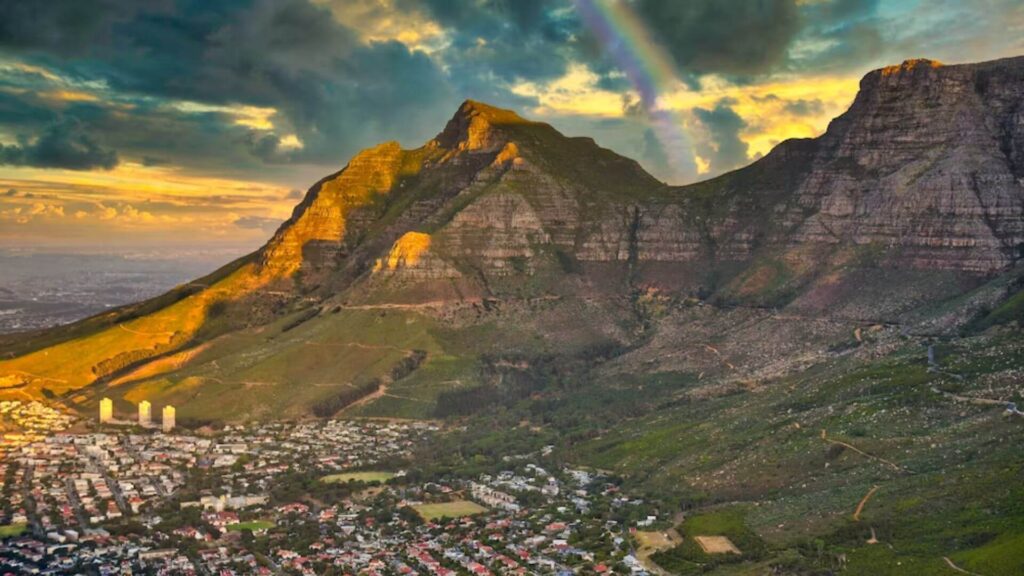
Safety Tips And Precautions
- Be aware of your surroundings at all times. This includes knowing that there are people who can help you if you get into difficulties. Security officers, local businesspeople, hotel staff, and even parking marshalls have been known to get involved to prevent visitors from being harassed and robbed.
- Walking alone at night in most parts of Cape Town is discouraged.
- Keep your valuables out of sight. As best possible, don’t wave your phone or moneybag around, and avoid wearing expensive watches or jewellery on the street. Pricey new sneakers can also make you a target.
- Zip your sling bag closed so your belongings aren’t exposed.
- Use ATMs located inside busy shopping malls but not at night.
- Secure your passport, travel papers, and valuables at your hotel. Check reviews of hotels and avoid those where dishonesty or theft is a recurring issue.
- Be careful about opening your door to strangers.
- Keep your bank cards in sight when transacting. When paying for anything, especially in busy bars and restaurants, you shouldn’t have to hand over your credit card.
- Keep your car doors locked when driving. Don’t leave bags or valuables on the passenger seat or in the car when parked. Be vigilant when stationary at red robots (traffic lights) on dark, quiet streets.
- Don’t resist if you’re robbed. However, if your attackers try and force you into a vehicle, you need to resist as strongly as you can. You may be fighting for your life.
- Practice safe sex.
Note: load-shedding refers to controlled electricity outages aimed at reducing strain on the power grid. In periods of heavy strain, the lights could be out for over six hours a day (usually scheduled in two or three blocks). A consequence of load-shedding could see your restaurant close early, leaving you on a dark street and possibly without a wifi signal.
It’s advisable to check the load-shedding schedules to ensure an outage doesn’t compromise your safety. The local government is actively developing strategies to limit load-shedding in Cape Town.
Local Insights On Cape Town Safety
- If you are driving in Cape Town, you will likely encounter car guards. These are the informal ‘guards’ who patrol many popular streets and watch over your vehicle when you park to go about your business. Many guards have worked in the same patch for years, making an honest living. Others may dabble in criminality.There is no obligation to pay these self-appointed protectors. That said, after a night out I usually palm a R10 note before I leave the venue. I hand it to the car guard as I enter my car. This quick exchange acknowledges the guard and avoids an argument while ensuring I’m not fumbling in my wallet on a darkened street at 1 am.
- Street beggars: Expect to be approached by homeless people and street kids asking for money and food. The decision to give handouts is entirely personal. I’m wary of giving money that enables a drug addiction. Instead, I carry a few small bags of peanuts to offer if approached. Don’t get distracted in these interactions, be politely firm, keep moving, and secure your valuables.
- Don’t buy street drugs. It’s illegal and can have serious consequences.
- Beggar scam: There is a swindle whereby a beggar approaches you near a store, asking you to buy milk formula for their baby (they may even have an infant with them). It’s likely the beggar is a drug addict and the formula will be traded with a dealer who then cuts it into cocaine, or bags it and sells it as the drug.
- Homeless settlements spring up and shift around the city over time. They harbour a criminal element (I once had the battery stolen from my hire car; a local mechanic reckoned it went to power a TV in a homeless encampment). I always check with my hotel about the homeless situation in the surrounding area to understand this risk.
- In South Africa, it is legal to smoke marijuana on your premises. Your accommodation will probably have rules about this. Check resources like guidance on marijuana to inform safe, responsible smoking.
Is It Safe in Cape Town, South Africa, for Female Travellers?
Millions of female travellers have enjoyed fantastic, safe adventures in Cape Town. In addition to the above vigilance, the following measures are recommended:
- Look for accommodation that scores highly for safety on reviews. Many homestays and guest houses provide a supportive environment for female and solo travellers.
- Take taxis arranged by your hotel or through Uber, especially at night.
- When socialising, watch your drink. Do not accept drinks from strangers.
- It’s best not to walk the streets with earbuds in since this reduces your awareness.
- Always let someone know your plans, especially if you go hiking (not alone) or on a guided tour.
- Dress and present like a confident local to avoid harassment.
- Do not go to isolated beaches alone.
- Be wary of giving your contact number or getting too involved with local ‘touts’ who promise you they can arrange special deals, excursions, shopping, and more for you.
- Never agree to carry a package back home for someone you meet on holiday.
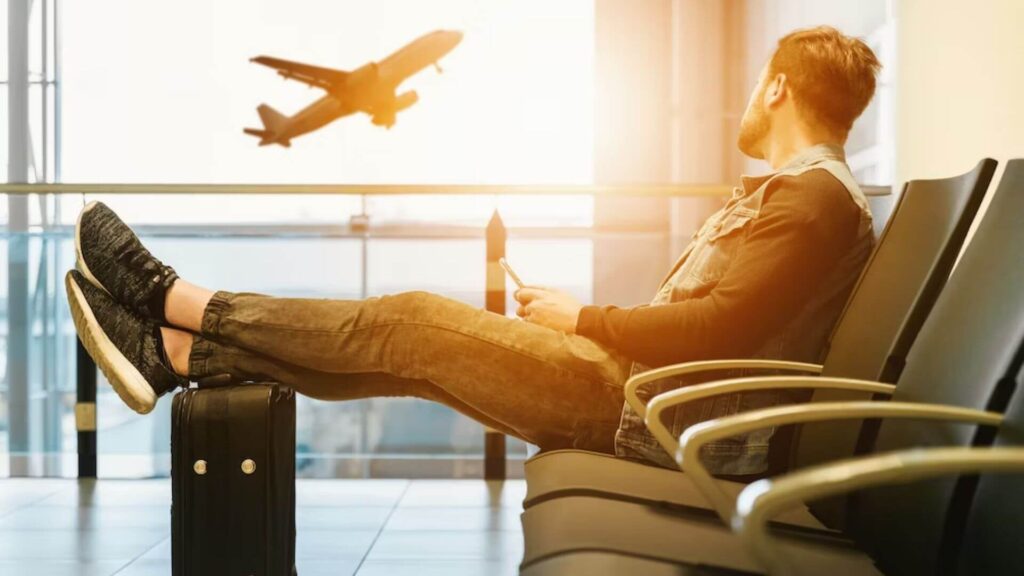
Is Cape Town Safe for Solo Travellers?
Cape Town is generally safe for solo travellers. One way to make it safer is to present yourself as a local.
Tip: Many tourists coming from icy winters to sunny Cape Town are immediately marked as tourists by their milk bottle pallor. If that’s you, a few sunbed sessions prior or some fake tan will help you blend in from the moment you land! In addition:
- Quiz your taxi or shuttle driver and the staff at your hotel about the local area. Plan how you will navigate it without looking distracted or ‘lost’.
- At the beach, ask lifeguards to watch your bag when you swim. Cape Town is mostly a good-natured city. There will be honest people around who you can ask too.
- Do not hike alone in Cape Town.
Emergency Contacts and Resources for Cape Town Visitors
Here are some important contacts and resources dedicated to ensuring visitor safety in Cape Town:
- Police: 10111
- Ambulance: 10177
- TravelWise provides current safety information, practical pointers, and emergency contact numbers.
- The Namola App is a free emergency response app that locates your position and accesses an emergency operator.
- The Band-Aid Programme (021 487 6552) can assist with lost travel documents, contacting banks following fraud, emergency accommodation, and dealing with SAPS.
- Metro police emergency: 021 480 7700
- Hiking Cape Town
FAQs
Is Cape Town, South Africa safe for families?
Cape Town is a good family destination with plenty to do and numerous family-geared facilities. If you do your research about the city’s risky aspects and exercise caution, you can enjoy a great, safe stay in Cape Town.
What are the safest beaches in Cape Town?
Fish Hoek, Boulders Beach, Muizenberg, Clifton, and Camps Bay are among the overall safest beaches in Cape Town.
Is Cape Town safe for solo female travellers?
Cape is generally safe for solo female travellers as long as you remain in the recognised tourist areas and practice the same vigilance you would in any large international city.


